The Lithuanian National Courts Administration hosted the second semi-final of this year’s THEMIS Competition, between 17 and 20 May 2016. The subject of the semi-final was International Judicial Cooperation in Civil Matters – European Family Law.
During the 4 days of the competition 9 teams from 8 Member States (Austria, Czech Republic, France, Italy, Lithuania, Poland, Romania and Slovakia) presented their written papers, debated legal issues with fellow team members and faced the challenging questions of the jury.
|
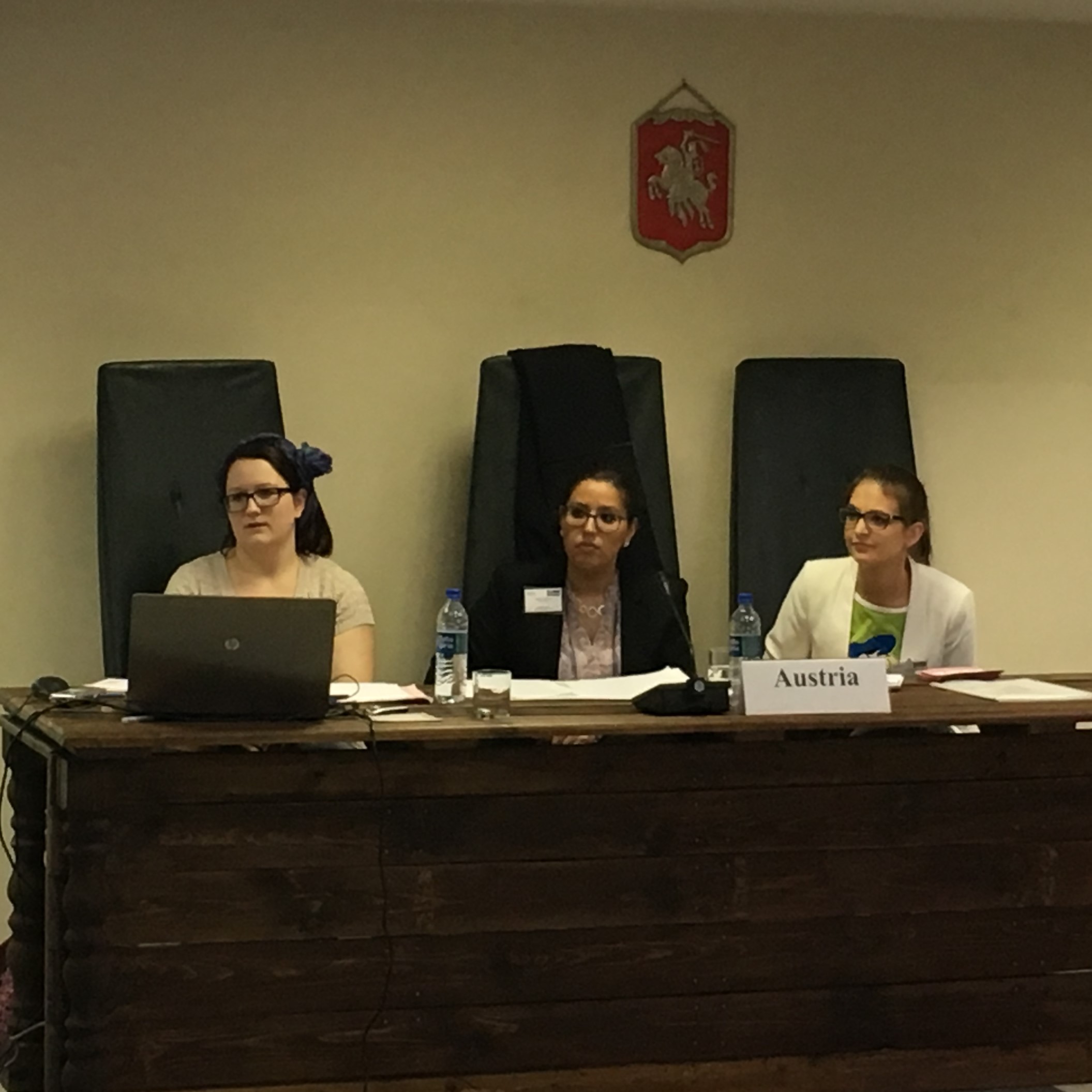 Team Austria Team Austria
|
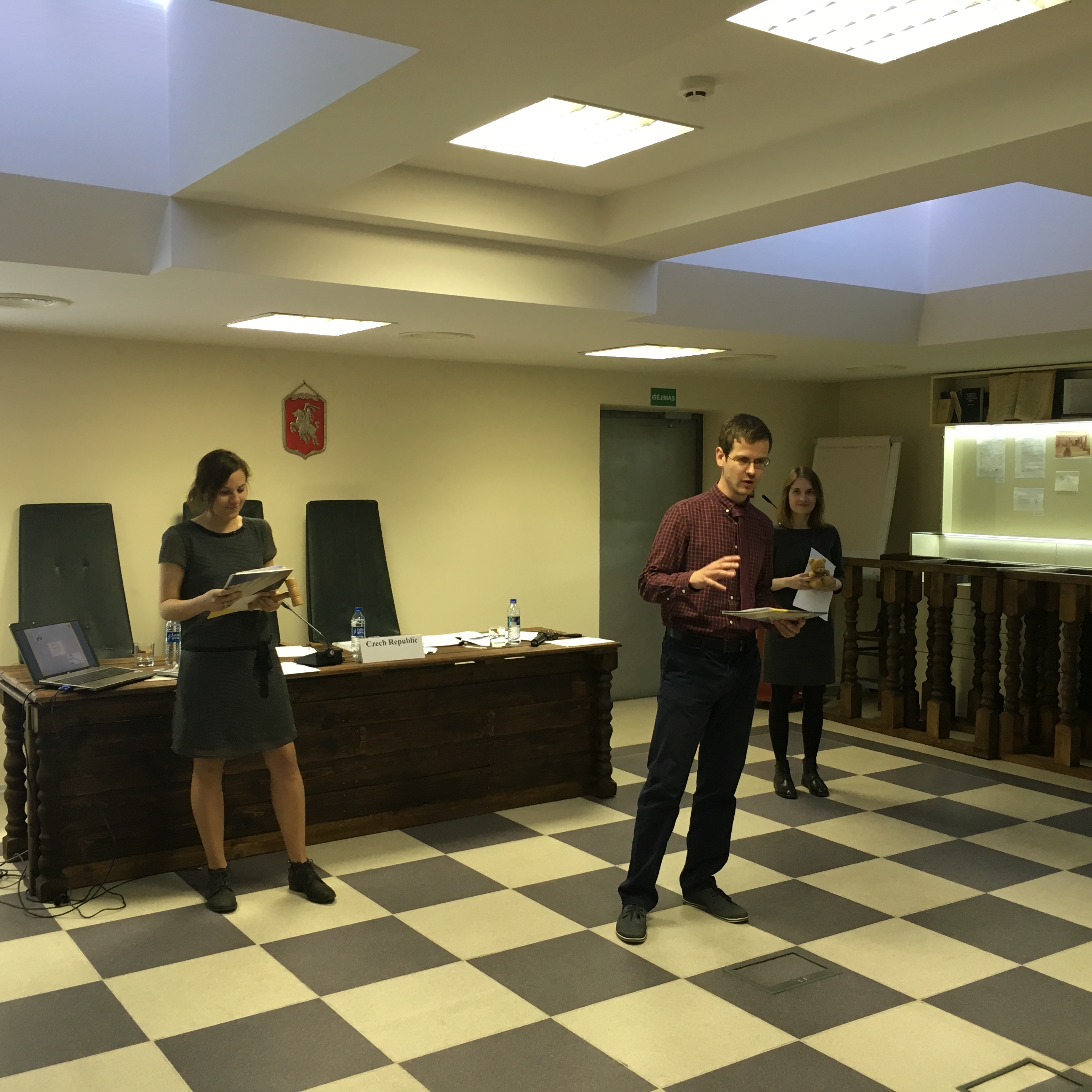 Team Czech Republic Team Czech Republic
|
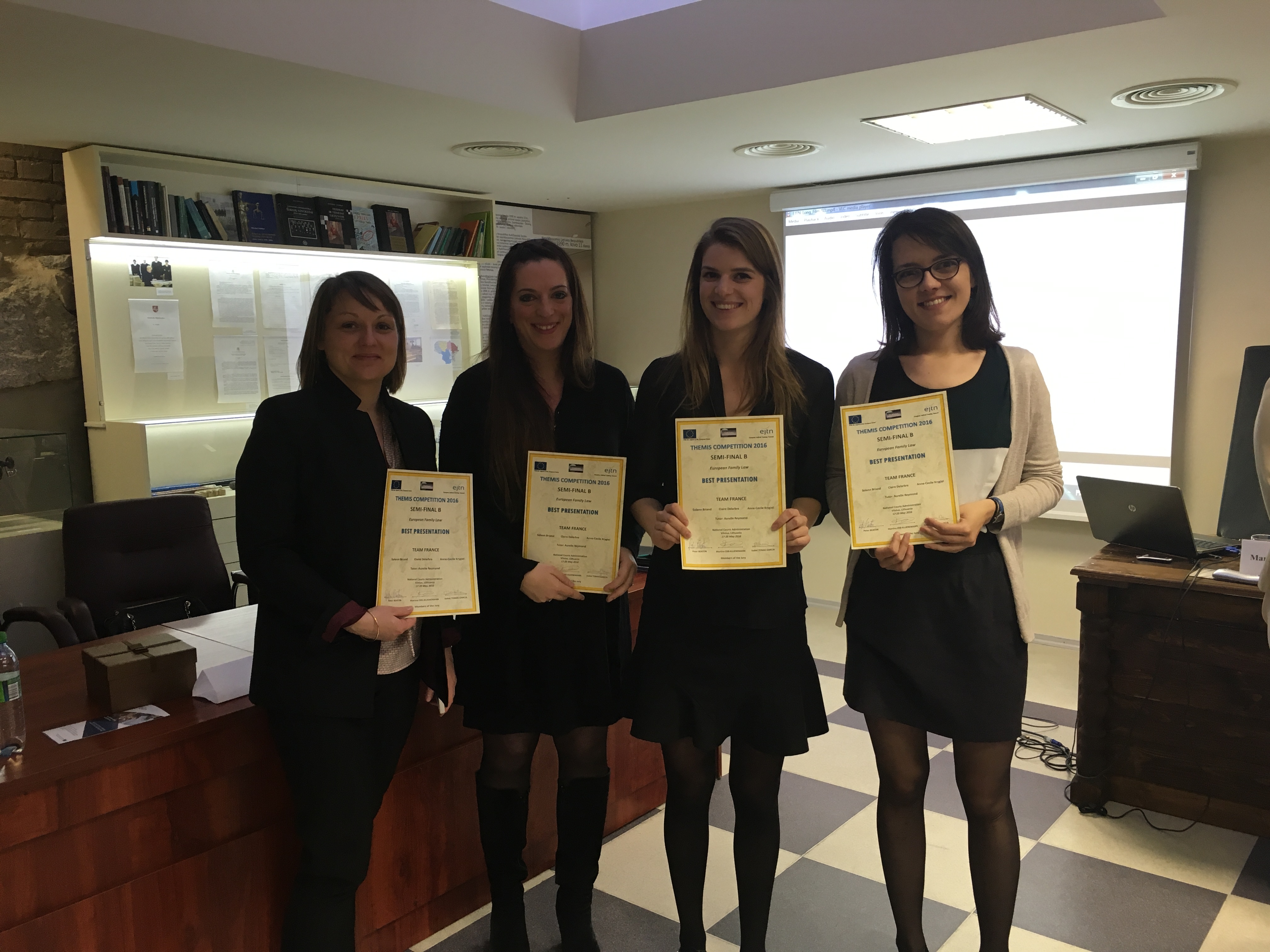 Team France Team France
|
|
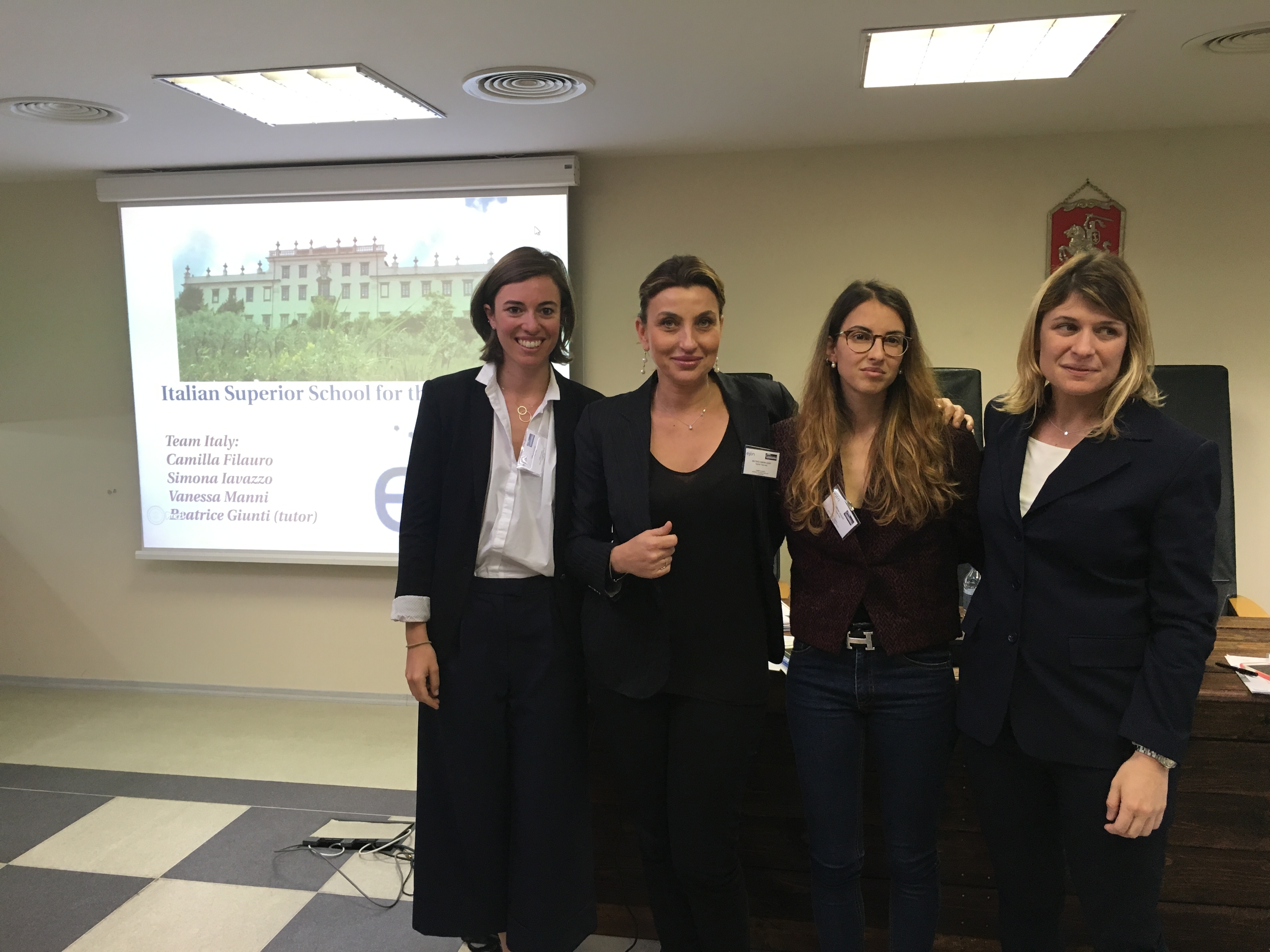 Team Italy Team Italy
|
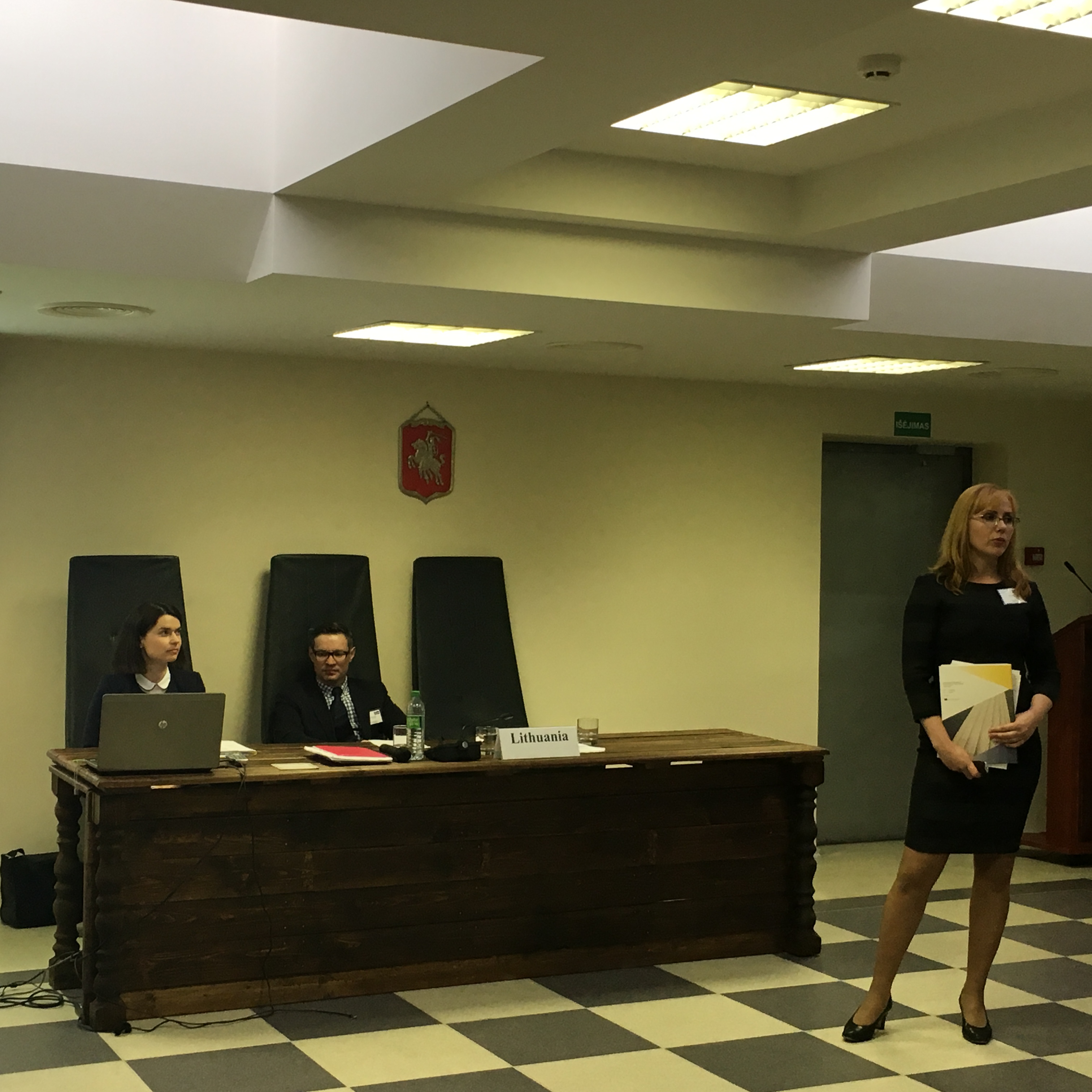 Team Lithuania Team Lithuania
|
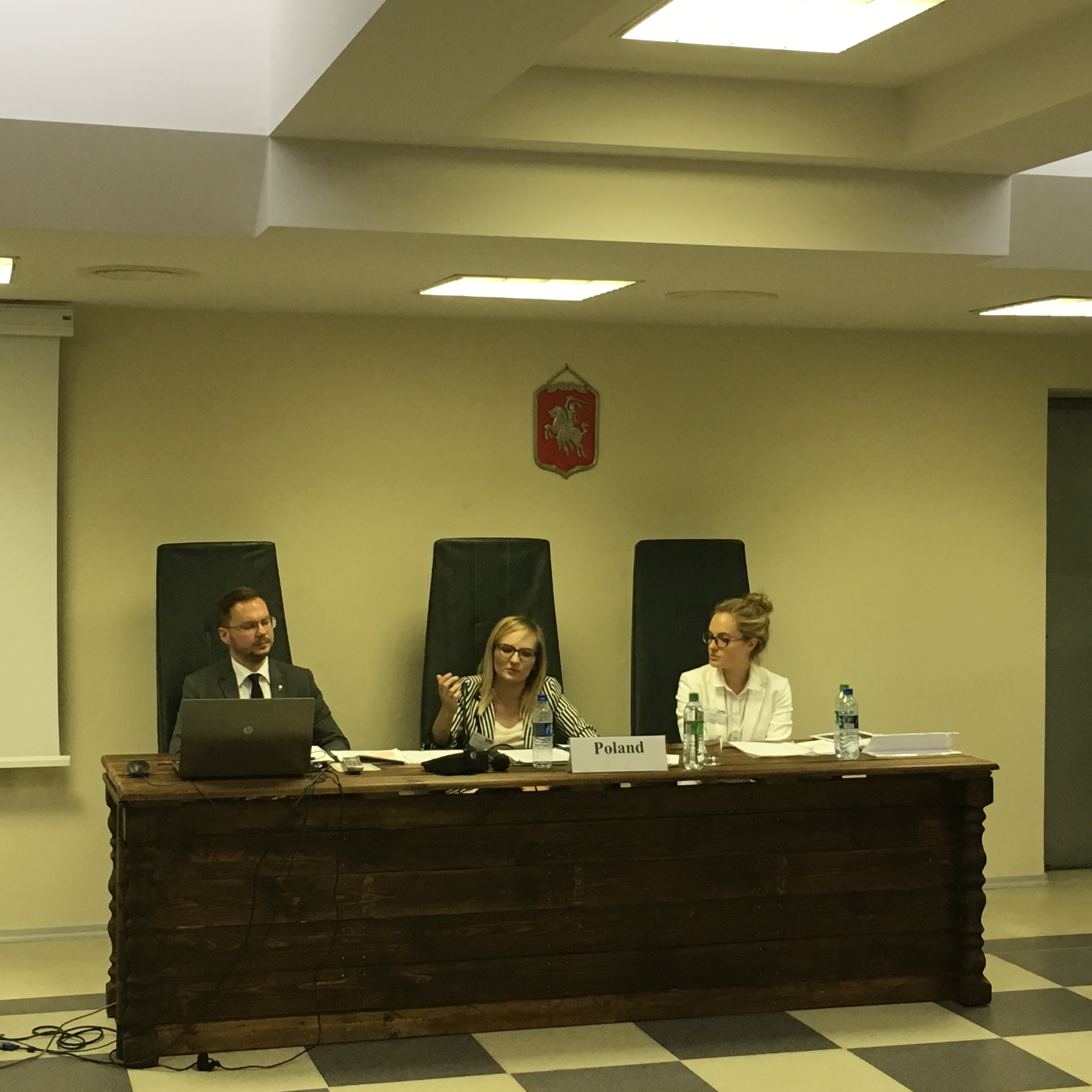 Team Poland Team Poland
|
|
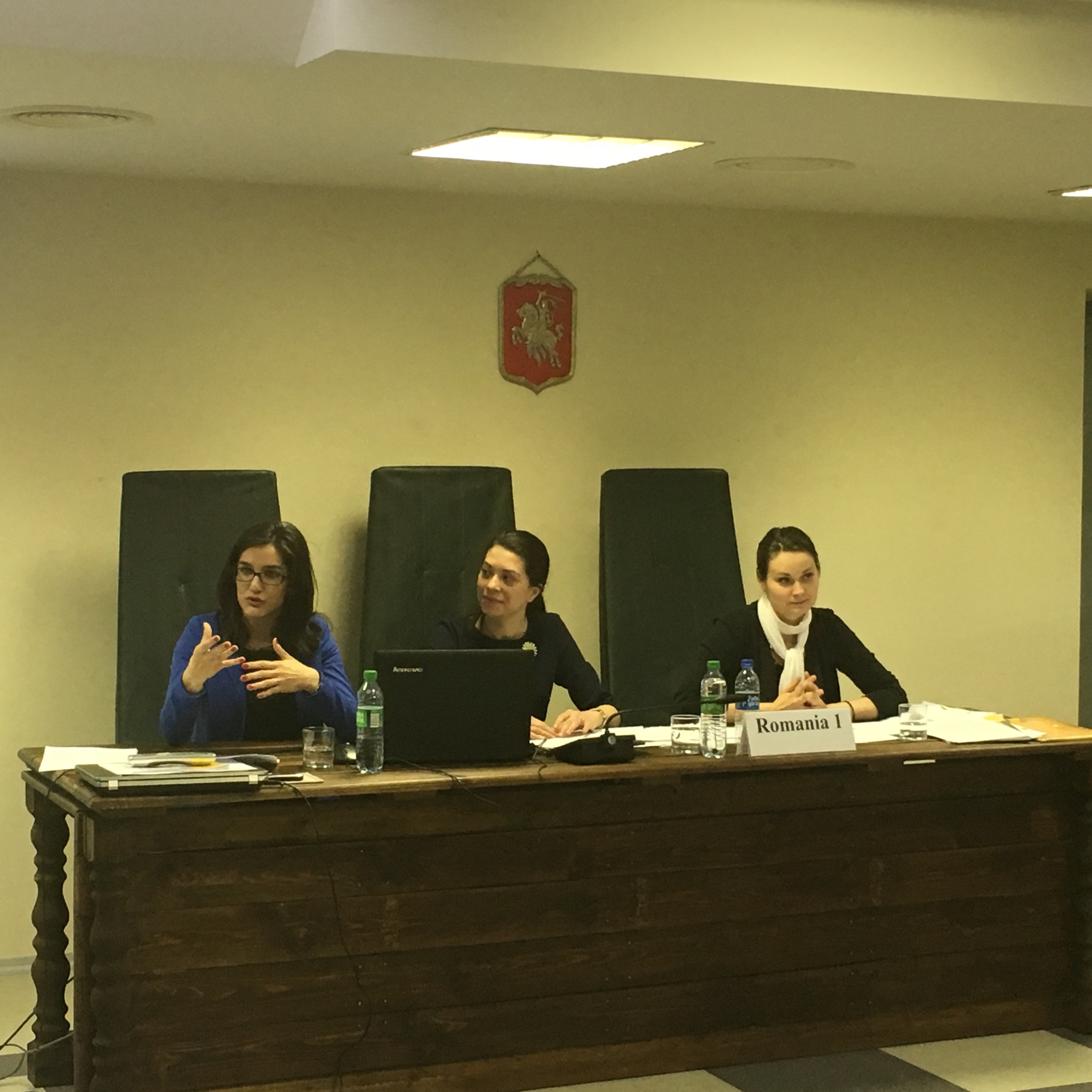
Team Romania 1
|
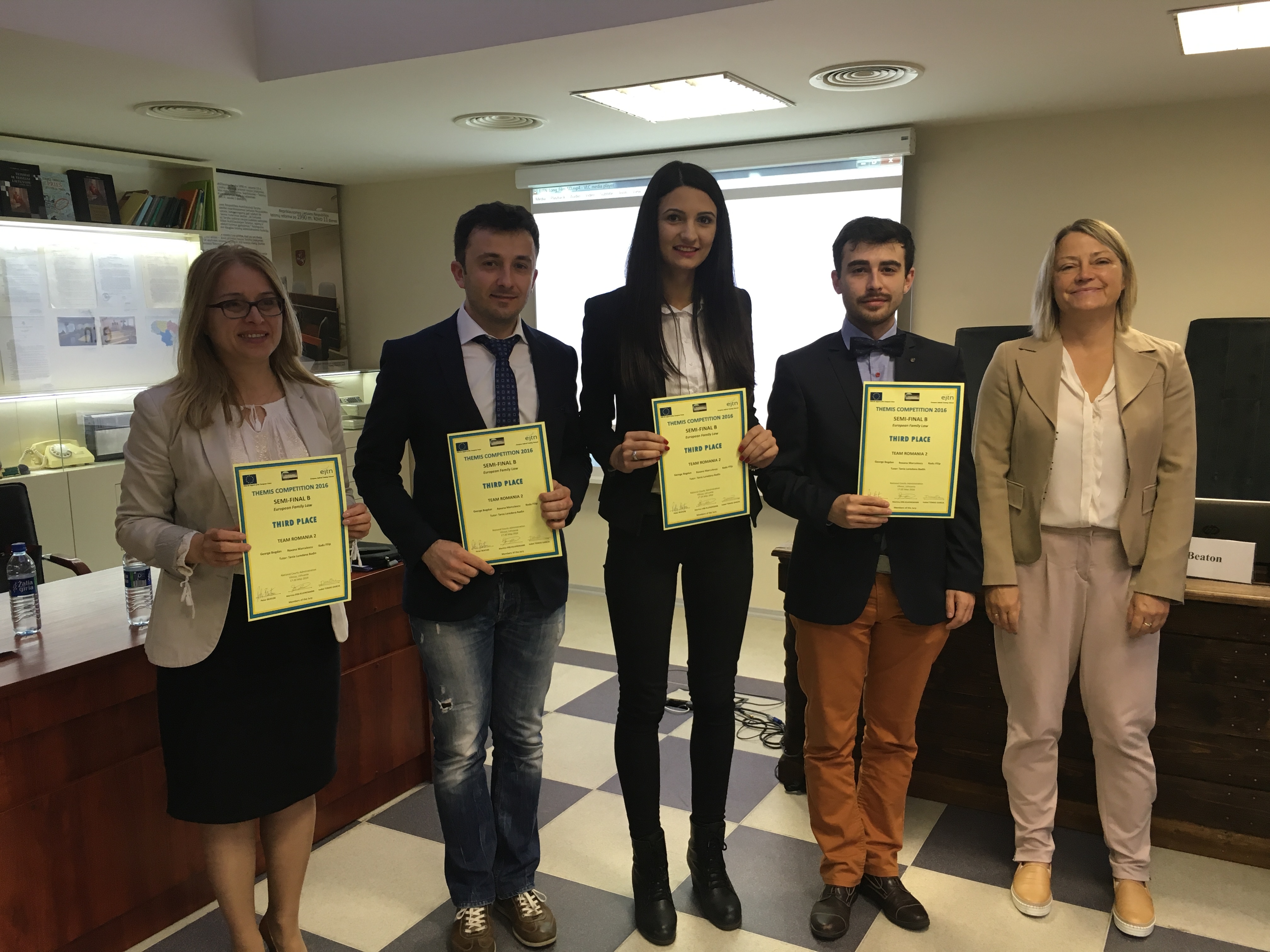
Team Romania 2
|
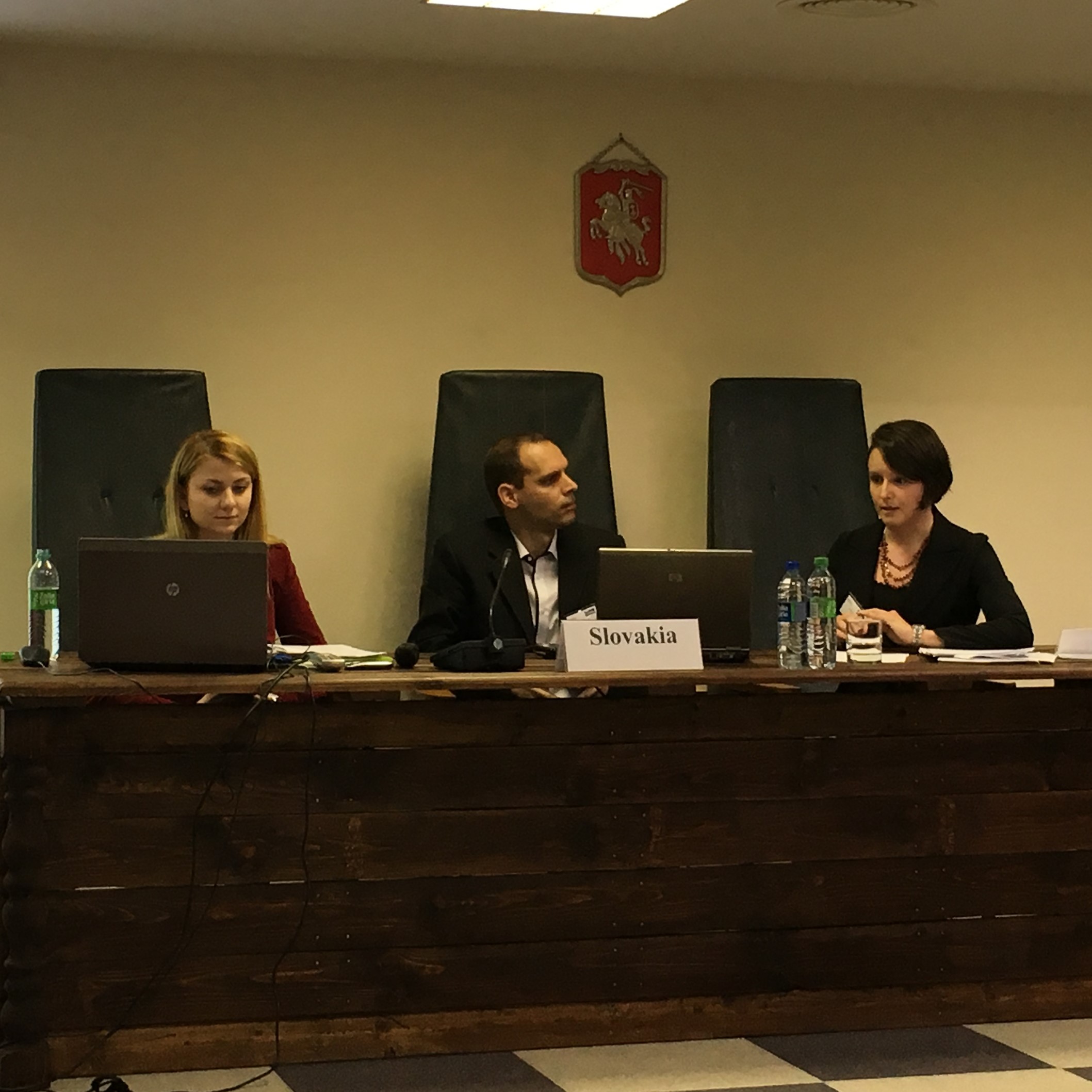 Team Slovakia Team Slovakia
|
The topics addressed by the teams were very different, including visitation rights of parents in European law, jurisdiction, filiation and genetics, the right of the child to be heard, biological vs. social paternity, legal and practical issues concerning civil aspects of international child abduction, exequatur procedure in Regulation no. 2201/2003 for judgements regarding parental responsibility, dilemmas in applying Council Regulation no. 4/2009 - safeguarding the creditors’ rights, cross-border adoptions without consent.
EJTN had the honour of having as members of the jury three very experienced professionals in the field of European Family Law to assess the competing teams: Mrs. Isabel TOMAS GARCIA from Spain, judge, head of the external and institutional relations department within the Spanish Judicial School, Mr. Peter BEATON from United Kingdom, legal expert, former Head of Division of the Scottish Government Justice Department responsible for policy on civil matters, former member of UK delegation in developing EC initiatives in civil issues and Mrs. Martina ERB KLUENEMANN from Germany, judge, specialised in European Family and Succession Law, particularly on family law/child protection; cross-border family conflicts including 1980 and 1996 Hague Convention, Brussels II bis and Mediation.
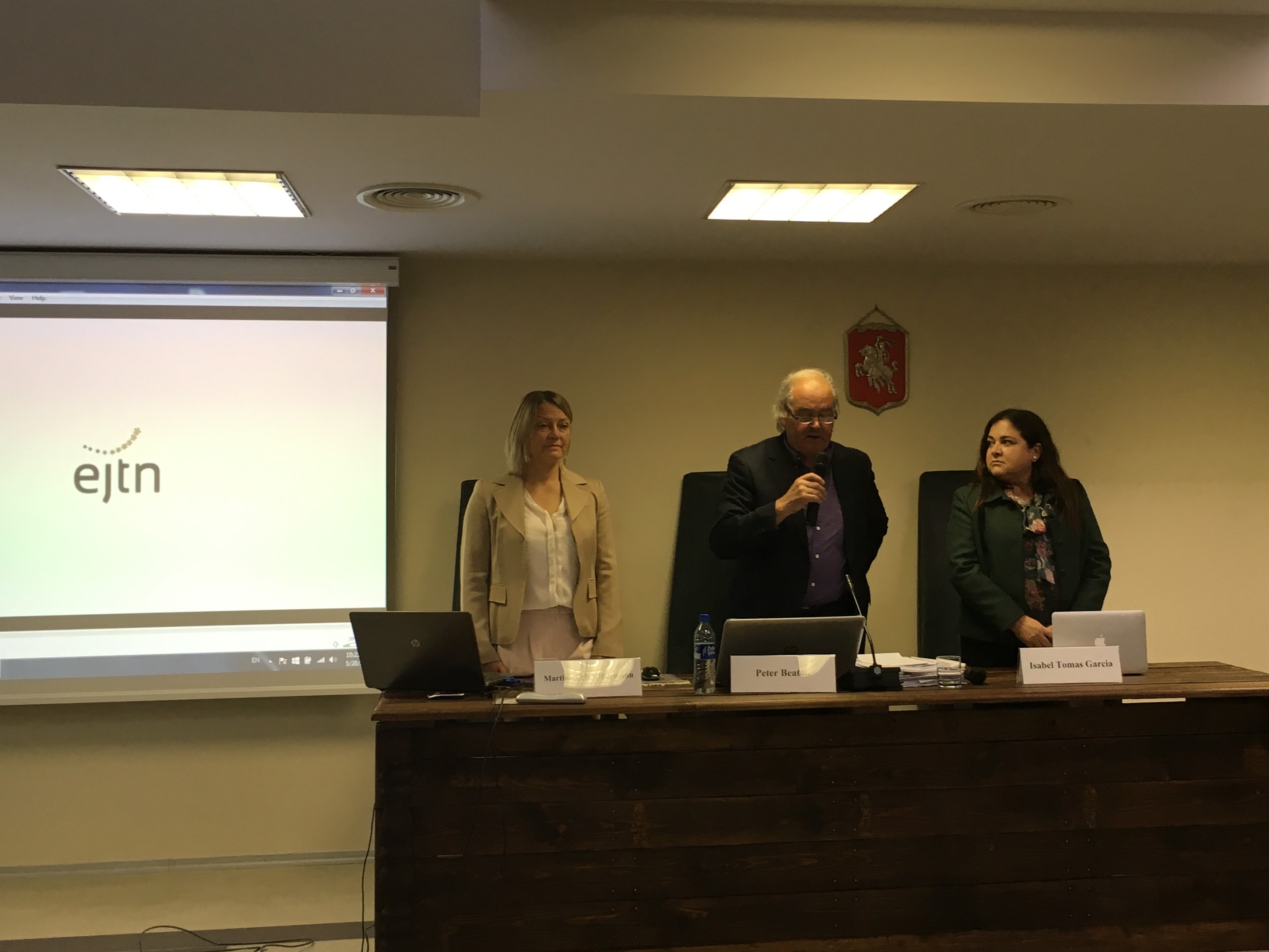
The jury members
The jury members assessed the overall quality and the originality of the written paper, the critical thinking and the anticipation of future solutions, the reference to relevant European case law, but also the communication skills and the consistency of the oral presentations. Naturally, in assessing the performances the jury had in mind the fact that the competition is about European Family Law and therefore they took into account the extent to which each team deployed in their paper, presentation and discussion elements of legislation and case law matters as well as analysis of current issues and debates concerning European Family Law.
The jury had the difficult task of assessing and ranking the 9 teams in order to decide the two finalists for the Grand Final, which will be held in Bordeaux, France.
Congratulations Team Romania!
First place was awarded to Team Romania 1 (Ms. Teodora Bogza, Ms. Viorela Bubau, Ms. Octavia Propasu and tutor Ms. Cristiana Mihaela Crăciunescu ), which had an interesting paper on a very hot topic, the abolition of the exequatur procedure in Regulation (EC) no. 2201/2003 for judgments regarding parental responsibility. According to the members of the jury, the whole performance of the team was characterised by positive and enthusiastic engagement with the subject matter in which the copious references to sources - notably ECJ - cases served to enrich the debate. A key feature of the presentation and the subsequent discussion was the clear ability of the team to discuss the issues raised in depth.
Second place was awarded to Team Czech Republic (Mr. Lukas Pisvejc, Ms. Kristina Romankova, Ms. Jana Vorlickova and tutor Ms. Tereza Koryntova), which adressed the topic of jurisdiction in parental responsibility cases very clearly, in particular in relation to the relevant provisions of Br II bis. The team had a very interesting oral presentation, using the role play to illustrate the issue.
Both teams will compete in the Grand Finals to be held in Bordeaux, France, together with the two winning teams from the first semi-final held in Riga last month.
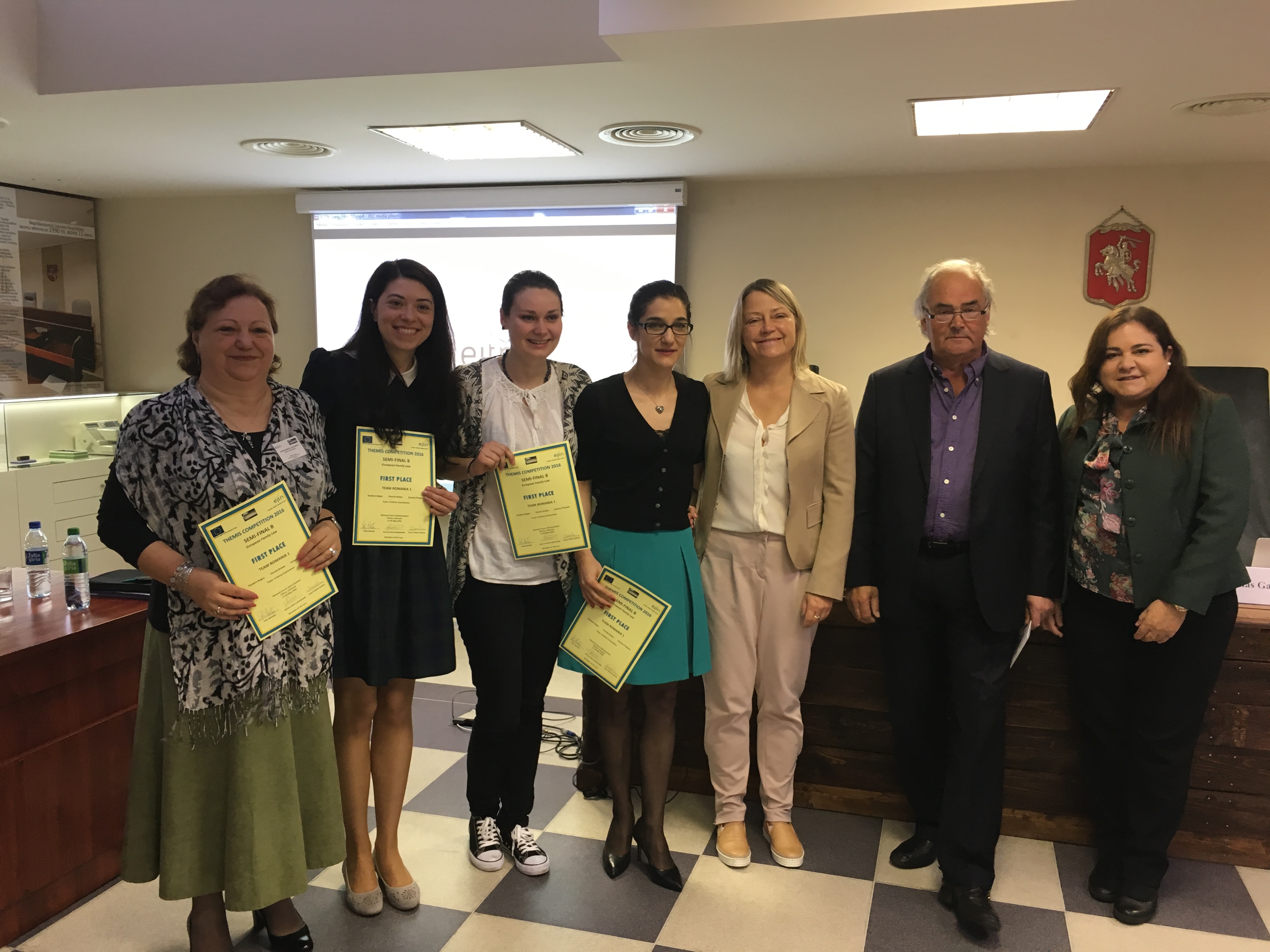
Team Romania 1 - first place |
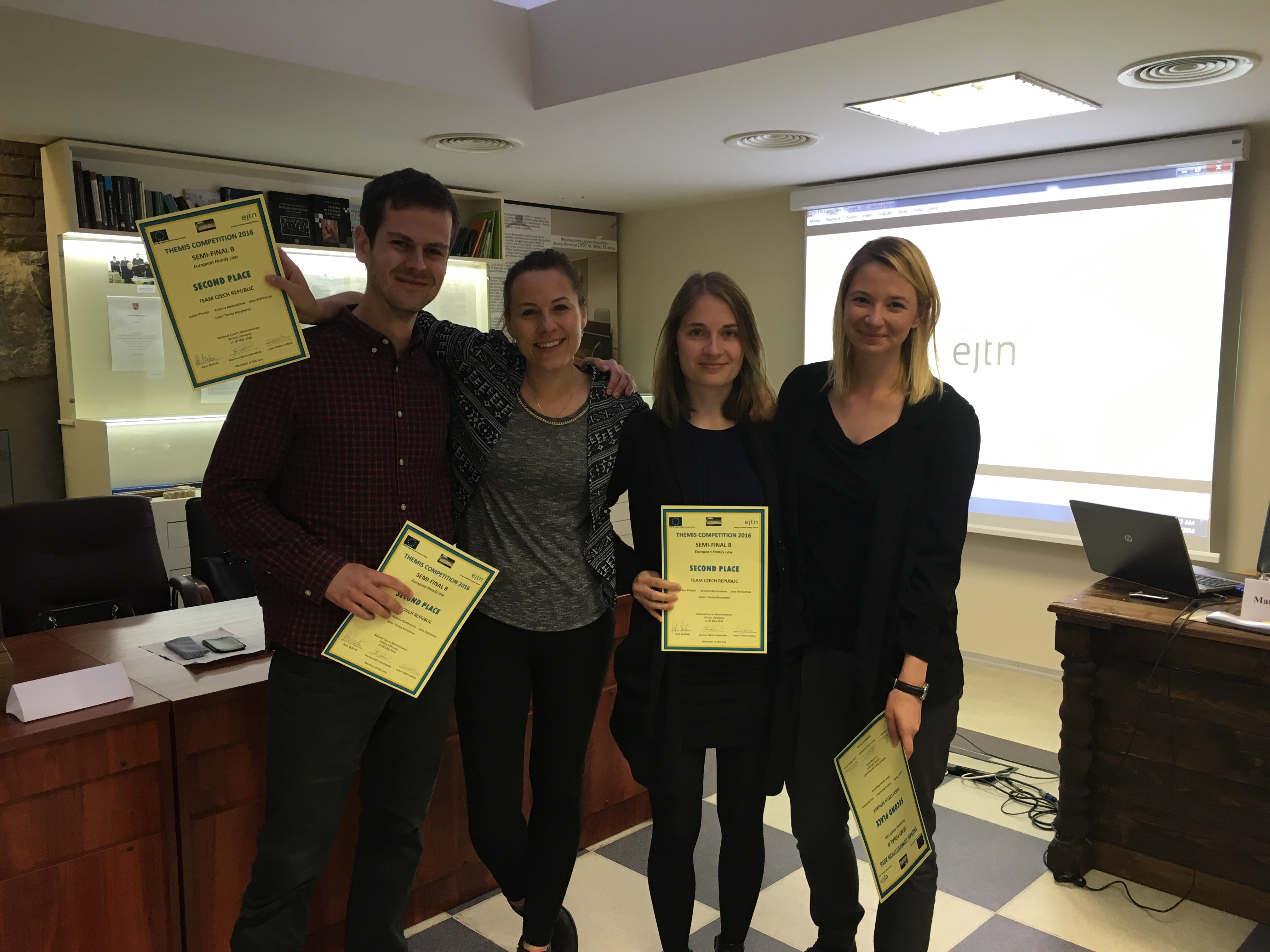
Team Czech Republic - second place |
The jurors expressed their thanks to all the participating teams for the very high quality of their written papers and outstanding presentations and for their effort in drafting a paper and debating in a foreign language. A special award was given to Team France for their presentation and all participants received a certificate of participation.
Throughout its long 11-year history, the THEMIS Competition has been helping future European magistrates to exchange views and experiences and improve their presentation and language skills. Most importantly, the Competition offers them the opportunity enhance personal and career contacts and to familiarise themselves with different approaches to the same legal topic, creating a space for improving mutual trust in other European legal systems.
What experiences did the teams pick up?
“For us the Themis competition was a great opportunity to research in depth an area concerning EU family law cooperation. What is more, it was a chance to learn about other legal systems of the member states. It allows you to meet highly qualified EU law professionals and peer judicial trainees, to learn more about their legal system and the training they are undergoing. The discussion with the jury helped us better understand the EU issues involved. Vilnius is a great city and the whole experience was unforgettable!” Team Romania 1, winner of the semi-final.
“Participating to the Themis semi-final B was a very enriching experience, professionally but also personally. During this competition, we were able to meet and discuss with other European trainees, developing our network and understand what mutual trust means in practice. It also allows us to complete our legal skills that will be useful in our future careers.” Team France, winner of the special award for the best presentation.
“THEMIS Competition is important event for all of us. The presentations are very interesting and touch different topics. The questions are sometimes hard and thanks to them every of us can develop the knowledge and we can also meet each other and start our connection for future. Events like this can help us make faster procedure in cross-border cases and get some knowledge about national law of other Member States. We can develop UE space of justice, safety and freedom and ourselves together. We can do better our daily job and feel that all of us are the one judicial family.” Sylwia Jastrzemska, PHD, tutor of Team Poland.
EJTN wishes to thank the hosting institution for the assistance and support in organising this semi-final, and especially to Mrs. Reda MOLIENĖ, the director of National Courts Administration of the Republic of Lithuania.
EJTN is the proud organiser of the annual THEMIS Competition, and is grateful for the financial support of the European Commission’s Justice Programme.
Written papers
Read more about THEMIS on the THEMIS project page.
About THEMIS
The main aim of the THEMIS project is to bring together future magistrates from different European countries at a time when they are undergoing entry level training to enable them to share common values and to exchange new experiences and discuss new perspectives in areas of common interest.
The project also aims to develop abilities related to the future profession of the participants, such as communication skills, debating abilities, critical and analytical thinking, logical reasoning and proper legal writing. Furthermore, THEMIS is intended to foster the development of professional contacts, experiences and relationships between both the entry-level trainees in magistracy and their teaching staff.